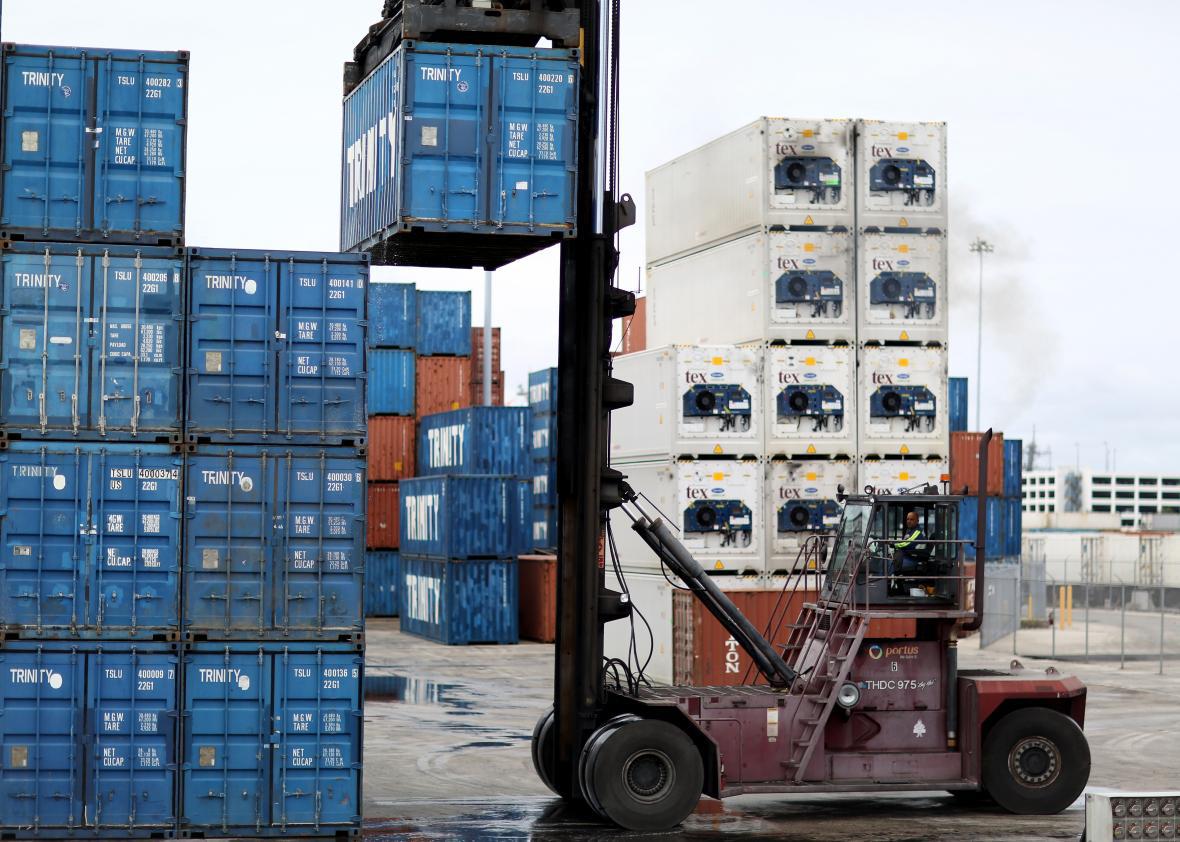Here is something that noted broken clock Donald Trump sort of gets right about our economy: These days, America’s trade deficit is a jobs killer.
This is not typically the case. Under normal circumstances, foreign trade is supposed to affect the types of jobs available to workers, not the number. There are a couple of reasons why. For starters, whatever money flows out of the U.S. thanks to our import tab eventually comes back to us as investment; after all, countries have to do something with all the dollars they earn selling us flat-screen TVs, oil, and sneakers. More often than not, that means buying U.S. Treasury bonds, which in turn keeps our interest rates low, allowing businesses here to borrow cheaply and invest. Beyond that, if the job market ever gets too soft, the Federal Reserve can ordinarily cut rates to push the economy back to full employment. So when T-shirt imports from China put a bunch of American textile factories out of commission, to take just one example, other businesses should emerge to take their place.
You can see how this works in practice if you think back to the 1990s, when we had a burning-hot job market and a growing trade deficit, or the mid-2000s, when unemployment dropped below 5 percent even as manufacturing work flew off to Shenzen.
But these are different times. Interest rates have been stuck near zero ever since the Great Recession as the economy has struggled to fully recover, meaning Treasury purchases by our trade partners don’t do us much good. (If you buy Larry Summers’ theories about secular stagnation, those capital inflows might actually be harmful.) And in the sick, sad economic world of the zero lower bound, our central bankers at the Fed can’t do much to boost the labor market, either; their monetary policy tool kit is all but tapped out (some countries have tried negative rates, but the effects haven’t exactly inspired confidence yet). So during the post-financial crisis era, our trade deficit has indeed turned into a drag on employment—a point Paul Krugman has been making off and on for several years now, as has the lefty Economic Policy Institute. I assume that Trump himself hasn’t considered any of these nuances, but at least his mercantilist instincts—which date back at least to his days of Japan-bashing in the 1980s—correspond to some sort of present day reality.
One could reasonably look at this situation and conclude that, with rates bogged down at zero, it’s more important than ever that we get our trade deficit in check. But that’s a lot easier said than done—at least if you don’t want to start a mutually destructive tariff war. (Trump is not bound by such practical concerns and has thus pretty much vowed to start said mutually destructive trade war.)
Instead, I would argue the following: Instead of fixing our trade deficit, we can fix the economy. Congress could pass a giant public works bill, for instance, to help the U.S. catch up to its potential output, at which point interest rates could finally start rising back up to normal, and the usual mechanisms that prevent trade deficits from causing unemployment would be restored. Of course, what I’m suggesting wouldn’t fix the distributional aspects of free trade—globalization, as we’ve organized it, would still benefit white-collar over blue-collar workers, since it tends to replace industrial jobs with service work. But at least we wouldn’t have to accept slightly higher unemployment as part of the bargain for cheap TVs. And surely, a stimulus bill would be a simpler task for Washington than rejiggering the entire balance of world trade.
